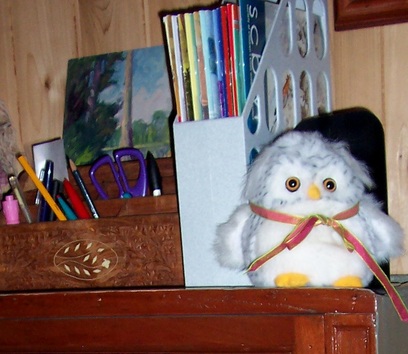 Do friends ask for your opinion on their artwork or stories? Are you happy to oblige or do you scramble for excuses: I'd love to but my dog ate fifty-seven pages of my homework. Or sorry, we're leaving, right this minute for an emergency vacation. Then you hide out for the next few days hoping they'll ask someone else and forget they asked you. Rather than fumbling for excuses and hiding, it's best to be prepared. If you have the time, honor their request. Some day, you may need them to return the favor. We write stories and make art for ourselves, but most of us mean to share it when it's finished. If it's created as a class assignment, teachers and fellow students offer comments. But artists and storytellers don't stop producing when the last bell rings. The work you create outside of school needs support too. So its' a good idea to learn how to offer helpful, honest feedback without crushing someone's feelings. You may already know of the sandwich formula: Start your critique with a positive: Share what's working for you. What do you like about the piece? Even if it's something you'd normally groan at, take another look. Are there colors in the art that appeal? Is there a character in the story you find intriguing, even if it's just the main character's pet? Then address what isn't working. What would you add to enhance the work? What would you delete? What needs clarifying? Don't give them a list. Consider the person's skill level and offer a couple points you feel will help them grow. Like, "The painting has a lot going on. I really like what's happening here, but maybe you could tone things down a bit there," or "The plot is exciting but there's one or two twists I didn't understand." Finish with encouragement. Thank them for sharing their work. It's takes courage to expose art to others. You pour yourself into the work and risk potentially hurtful criticism when you ask peers to review it. So respect that and encourage creativity, not stifle it. And now a couple more thoughts. If a person comes to you who has never shared their work, offer mostly encouragement. Accepting criticism without the ego being bruised is a learned skill. It takes time. Then again, there will be people who have shared enough work to have learned to accept critical feedback and yet, they want only praise from you. They won't be open to helpful criticism no matter how sensitively you give it. So it helps to ask the presenter what they'd like from you in the way of feedback before you begin. And when you encounter people who aren't interested in your advice, save your breath. Becoming good reviewers is a skill that benefits others, helps you see mistakes in your own work and prepares you for the future no matter what path your art takes. As artists and writers, you'll value the relationships you build with others through critiquing and it will grow your work and your mind in unexpected ways.
0 Comments
Your comment will be posted after it is approved.
Leave a Reply. |
AuthorI write middle grade and young adult books with a magical twist, and I'm represented by the fabulous Leslie Zampetti at Open Book Literary. Writer Websites
Augusta Scattergood Maggie Stiefvater Rob Sanders Fred Koehler JC Kato Sarah Aronson Kelly Barnhill Linda Urban Kate DiCamillo Jacqueline Woodson Helpful Links SCBWI Agent Query Lorin Oberweger - Freelance Editor Search BlogArchives
May 2020
Categories
All
|
 RSS Feed
RSS Feed
